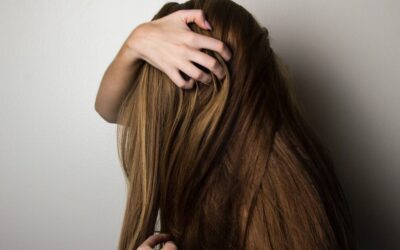Alopecia – the mere thought of it triggers worry in people. This is because this word is often associated with total hair loss not just on the scalp but also on other body parts.
Before you panic as well, let’s clarify one thing first. Alopecia per se is hair loss. To be more precise, it is the term used for hair loss by those in the medical field.
So, do not immediately think about balding when you hear this term, especially if you are woman. Alopecia in females rarely leads to complete loss of hair; rather, it causes hair thinning.
However, there is a hair loss condition which results in bald patches. It is called Alopecia Areata (AA); thus, the association and panic.
AA has two severe forms – Alopecia Totalis (AT) and Alopecia Universalis (AU). AT is characterised by complete hair loss on the scalp. Meanwhile, in AU, loss of hair is not just concentrated on the head; other body parts are also affected like the arms, torso, legs, etc.
Want to know more about alopecia or hair loss? Read on to learn about some important facts about it.
Alopecia Knows No Gender
Hair loss equally affects men and women. “It is estimated that 40% of men aged 35 have noticeable hair loss. Meanwhile, 40% of women show signs of or are suffering from hair loss by the age of 40.”
The most common cause of alopecia in men and women is pattern baldness – male pattern baldness (MPB) and female pattern hair loss (FPHL). Genetics is believed to play an integral role in these conditions.
Children Can Suffer from Hair Loss
It is not just adults who experience alopecia. Children and teenagers may also experience or have hair loss problems.
The top cause of alopecia in children is tinea capitis, a fungus-caused scalp infection. This highly contagious condition is characterised by the presence of scaly and reddish bald spots on the scalp.
Another leading cause of hair loss in young people is alopecia areata. “Around 25% of known cases of alopecia areata involved children.”
Meanwhile, for teens, particularly girls, the culprit behind excessive hair shedding is hormonal changes. Often, the alopecia is just temporary in these cases. Once the hormone levels stabilise, the hair fall stops.
Some Types of Hair Loss Are Reversible
Androgenetic alopecia or pattern baldness is a progressive condition. This means that as you get older, its effects are going to be more pronounced. While it can be prevented from progressing rapidly, it is not curable.
However, not all types of alopecia are like this. There are some hair loss conditions which are irreversible. A good example here is traction alopecia.
“Traction alopecia is a hair loss condition brought about by tight hairstyles such as ponytails, buns, braids and cornrows. Always wearing your hair in these styles can put excessive tension on your locks and result in the repeated pulling of strands from the follicles.”
In this type of alopecia, the problem stops once the cause is eliminated. What’s more? You can expect your hair to go back to normal after several months.
Alopecia Treatments Are Available
Several treatments are available for alopecia. “There are medications and procedures which help arrest the progression of the hair loss as well as promote hair growth in the affected area.”
These alopecia treatments are highly effective, but please do not expect them to deliver results overnight. Oftentimes, their effects become noticeable after several months or after repeated sessions.
Keep in mind:
“Treatment is dependent on the reason behind the alopecia.” Furthermore, hair and scalp specialists also consider the severity of the condition and age of the patient in designing the treatment plan.
Early Intervention Is Key
Early intervention always yields better results. This is true even for non-curable or irreversible hair loss conditions like pattern baldness and alopecia areata.
Hence, it is highly recommended that you see an experienced dermatologist or a trichologist immediately when you notice excessive hair shedding.
It is also important that you choose a trusted specialist, preferably one who is experienced in treating hair loss in Ireland. This is to ensure that you get the best possible treatment and care.
Suffering from alopecia? Know what treatment options are available for you. Call us at (0)1 6793618 and schedule an appoint with our specialist.
—
Image by Skica911 from Pixabay



